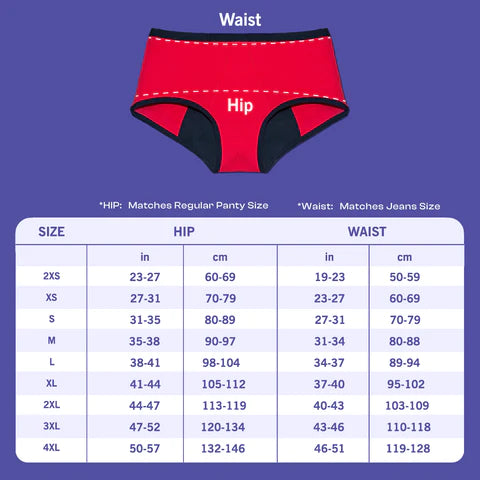Amidst the myriad of suggestions and advice from everyone around, it’s hard to filter out the useful information from the irrelevant ones, and because of this overload, there is miscommunication all around.
Consequently, as everyone knows, miscommunication leads to misinformation, and thence, many misbeliefs and myths are created about periods; and the most innocent victims of these fabricated stories are uninformed teenagers.
You don’t have to worry; we are here to bust some common myths about periods with accurate facts and certainties to help teenagers understand their bodies a little better.
Here's a list of common myths and facts
Myth: Your period comes on the same date every month
Fact: The biggest misconception about periods, especially for beginners, is that the time of the month never changes. It is completely normal for dates to move around since cycles are constantly changing.
It is assumed that a menstrual cycle lasts 28 days, but this is only an average number. All women have a different threshold, and factors like travel, medication, emotions, etc. can lengthen or shorten your cycle.
So, if you got your period on the 10th of this month, don’t expect it to fall on the same date next month too.
Also Read: 4 Things You Probably Didn’t Know About Periods
Myth: You are infertile while menstruating
Fact: Read this very carefully: yes, you can still get pregnant while on your period. Although the likelihood of you conceiving is statistically less, it is not completely out of the question.
No matter what, under any circumstance, do not forget to use contraceptives to prevent an unplanned pregnancy.
Myth: You should not exercise on your period because it causes cramps
Fact: People around you will tell you to practice bedrest and limit your movements during this time of the month because moving around too much ‘reduces infertility’. However, this is a myth.
Exercising is as important as good sleep and rest, and some light physical activities can actually help relieve cramps, boost your mood, and overcome exhaustion.
Myth: PMS is all in your mind
Fact: The rush of emotions and mood swings that you experience before your period is not your imagination. This premenstrual syndrome is a result of fluctuating hormones, and can even cause physical symptoms such as fatigue, bloating, and irritability.
Myth: You should not eat pickles or other sour foods during your period
Fact: There is no scientific evidence to support this claim. It is important to consume a well-balanced diet and ensure you are getting all the necessary nutrients, but there is no specific food that is particularly ‘bad’ for you during this time of the month.
What are some of the superstitions you have heard growing up? Let us know in the comments and we can help bust them with logic and facts! Let’s not continue living in the dark ages while we’re in the era of the internet
Also Read:


